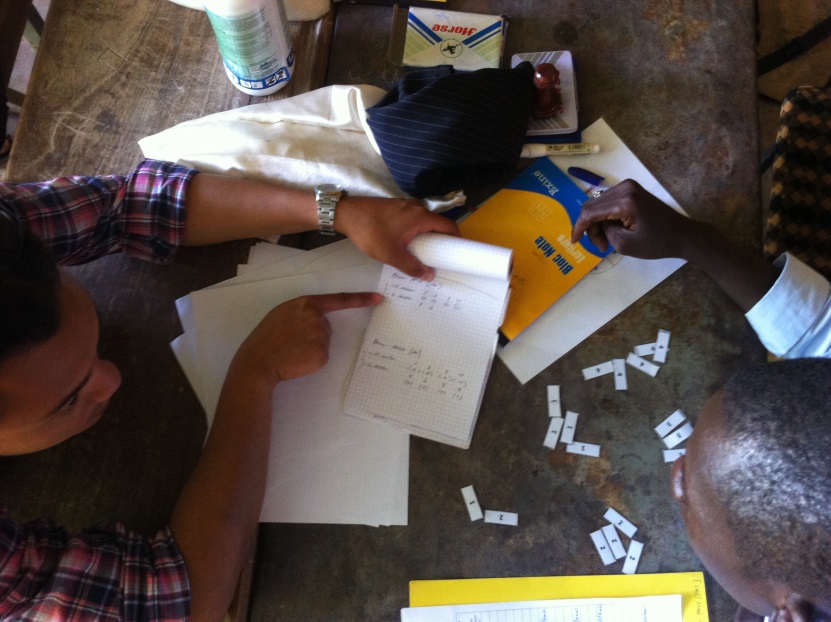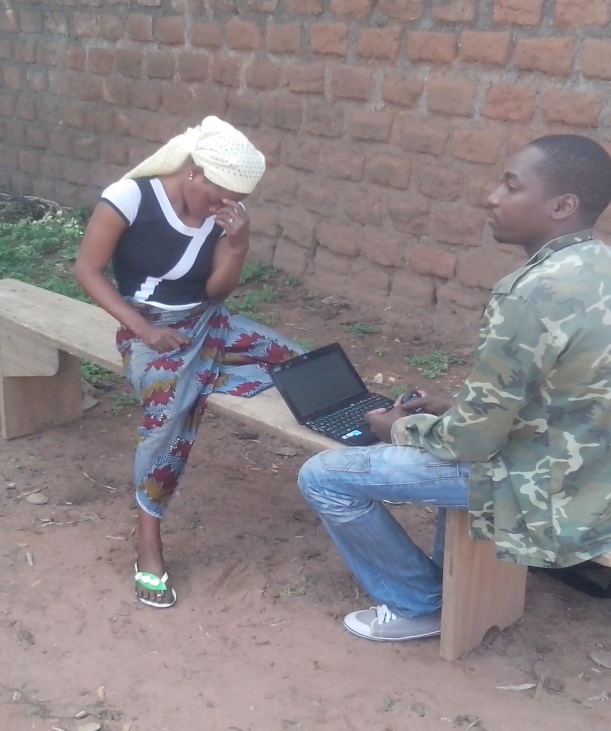Editor’s note: This guest posting is by IPA intern Ali Ouedraogo.

Farmers in rural areas face many questions about their levels of productivity every year – how much fertilizer will they get to grow their crops? What emergency issues will they face, from health problems in their families to the volatility of rainfall? (See a chart of Burkina Faso’s rainfall from 1950-2007
here.) Managing these risks is not easy for farmers with little education or access to new information technology. In addition to these risks, the level of interest rates on savings and the costs and benefits of informal savings with family and friends could ultimately influence their economic decisions.
It’s a desire to understand how West African farmers manage these risks that is leading
IFPRI, in collaboration with IPA, to conduct a lab experiment in Burkina Faso. For the first part of the experiment, we (the survey team and the risk game team) went to 11 villages during two weeks in the
Houet region. In each village we surveyed 40 people every day, running two sessions – 20 people in the morning and 20 in the evening – for the experiment. The survey and the lab experiment (risk game) are separate but complementary.
As a field intern, I had the chance to experience not only how the randomization of samples works but also the privilege to meet motivated farmers whose devotion to work was inspiring for us. We worked closely with them at times throughout and we appreciated their commitment and availability to help us in our project. Travelling from village to village was also an interesting learning experience. The Houet region in Burkina Faso has a beautiful landscape and people are very welcoming. We shared food with them, visited their schools and answered some of their questions related to the international fixing of some commodity prices and climate change.

The lab experiment was a type of "risk game”
designed to measure the risk aversion of farmers. It is structured in different rounds. The first round consists of checking personal information and distributing 6000 FCFA (USD 12) to each member of a group of 20 farmers. They are then randomly assigned to 4 sub-groups representing 4 different treatments, which are explained to them by agents trained for that purpose.
During the final stage of the game called “the decision,” farmers are asked to make different sort of economic decisions based on the type of treatment they have been assigned to. For instance how much insurance they would want to buy, how much money are they willing to save, and how much fertilizer will they be buying in a month. After the decision has been made, we then end the experiment with a “lottery” where the choice of outputs would likely depend on the farmer’s aversion for risk.

Working with our different teams has been a rewarding experience. The first part of our project (baseline) went well and we are now about to close the second part (midline), which occurs exactly a month after the first one. This second part is about the payment of interest rates on savings and the “input fair,” which allows farmers to buy the amount and type of fertilizer they have committed to buy a month ago.
We are hoping that the risk game, along with the experiment and survey, designed by the International Food Policy and Research Institute in collaboration with Innovations for Poverty Action will help us better understand how farmers manage risks in West Africa.
Ali Ouedraogo is an intern in our Burkina Faso office, and MA in economics, Brandeis International Business School.
 Farmers in rural areas face many questions about their levels of productivity every year – how much fertilizer will they get to grow their crops? What emergency issues will they face, from health problems in their families to the volatility of rainfall? (See a chart of Burkina Faso’s rainfall from 1950-2007 here.) Managing these risks is not easy for farmers with little education or access to new information technology. In addition to these risks, the level of interest rates on savings and the costs and benefits of informal savings with family and friends could ultimately influence their economic decisions.
Farmers in rural areas face many questions about their levels of productivity every year – how much fertilizer will they get to grow their crops? What emergency issues will they face, from health problems in their families to the volatility of rainfall? (See a chart of Burkina Faso’s rainfall from 1950-2007 here.) Managing these risks is not easy for farmers with little education or access to new information technology. In addition to these risks, the level of interest rates on savings and the costs and benefits of informal savings with family and friends could ultimately influence their economic decisions. The lab experiment was a type of "risk game” designed to measure the risk aversion of farmers. It is structured in different rounds. The first round consists of checking personal information and distributing 6000 FCFA (USD 12) to each member of a group of 20 farmers. They are then randomly assigned to 4 sub-groups representing 4 different treatments, which are explained to them by agents trained for that purpose.
The lab experiment was a type of "risk game” designed to measure the risk aversion of farmers. It is structured in different rounds. The first round consists of checking personal information and distributing 6000 FCFA (USD 12) to each member of a group of 20 farmers. They are then randomly assigned to 4 sub-groups representing 4 different treatments, which are explained to them by agents trained for that purpose.  Working with our different teams has been a rewarding experience. The first part of our project (baseline) went well and we are now about to close the second part (midline), which occurs exactly a month after the first one. This second part is about the payment of interest rates on savings and the “input fair,” which allows farmers to buy the amount and type of fertilizer they have committed to buy a month ago.
Working with our different teams has been a rewarding experience. The first part of our project (baseline) went well and we are now about to close the second part (midline), which occurs exactly a month after the first one. This second part is about the payment of interest rates on savings and the “input fair,” which allows farmers to buy the amount and type of fertilizer they have committed to buy a month ago.










